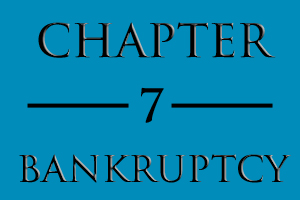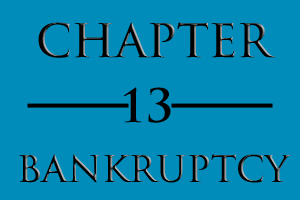Many people throughout Pennsylvania struggle to pay their bills each month and often find themselves falling farther and farther behind. Failing to take care of these problems can lead to losing your home, car, and personal property. At Graml Law Office, we have dedicated our practice to helping people get a Fresh Start.
×Chapter 7 Bankruptcy
When clients file for Chapter 7 bankruptcy protection, they are taking necessary steps that enable them to move past difficult times and obtain the opportunity for a fresh start. A Chapter 7 filing relieves a person from having to pay for most debts, including credit card balances, medical bills, and court judgments. Certain types of debt such as student loans, government fines, most taxes, and child and spousal support usually cannot be discharged in a Chapter 7 Bankruptcy filing. Filing for Chapter 7 Bankruptcy will cause the liquidation of non-exempt assets by the United States Trustee. The bankruptcy trustee will evaluate and sell off the debtor’s nonexempt assets to pay off creditors. A Chapter 7 bankruptcy debtor is able to keep all property that is exempt.
Examples of exempt property include:
- Cash, U.S. savings bonds and tax refunds up to $2,500
- Household furniture
- All wearing apparel
- Certain appliances and household goods
- Equity in a motor vehicle up to $2,400 ($4,800.00 For spouses filing jointly)
- Equity in a house, condo, or co-op up to $50,000.00 ($100,000.00 for spouses filing jointly)
- Most pensions and retirement plans
In order to qualify for Chapter 7 Bankruptcy, a debtor must pass the means test. The test is a two-step income and expense analysis that is very complicated to calculate. Our office will evaluate your situation to determine if you qualify for Chapter 7 Bankruptcy Protection. If you do not qualify for Chapter 7 Bankruptcy, we will research other alternatives, such as Chapter 13 Bankruptcy, to help you get the relief you need!
Chapter 13 Bankruptcy
Chapter 13 Bankruptcy relief allows a debtor the opportunity to pay off debts through a payment plan over a period of three to five years. Through filing a Chapter 13 bankruptcy petition, a debtor can keep all non-exempt property–usually a home or car. The main benefits of Chapter 13 bankruptcy is that interest and late fees do not accrue while the debtor continues to make payments through the agreed upon plan. Often a debtor will utilize the Chapter 13 option when he or she is behind on mortgage payments. Chapter 13 bankruptcy can also stop foreclosure proceedings and give the debtor the right to pay back the past due payments over a period of 36 to 60 months. Under the court-approved payment plan, a debtor will pay back a percentage, or all, of the unsecured debt. Once the plan is completed, the debtor will receive a discharge of debts and will be able to keep his or her property. The Chapter 13 bankruptcy is designed for people who have a continual income, equity in their home, have previously filed for Chapter 7 bankruptcy within the past seven years, or are not eligible to file for Chapter 7 bankruptcy.
Relax. We Will Take Care Of Your Debt Problems
Once you have retained our office, we will take control of your situation and file your Bankruptcy Petition and deal with your Creditors so that you don’t have to. Once your creditors are informed that our office represents you, they are no longer allowed to harass or even contact you. Bankruptcy can also stop foreclosures and the repossession of your property. Contact our office now to arrange for your free Bankruptcy consultation.



